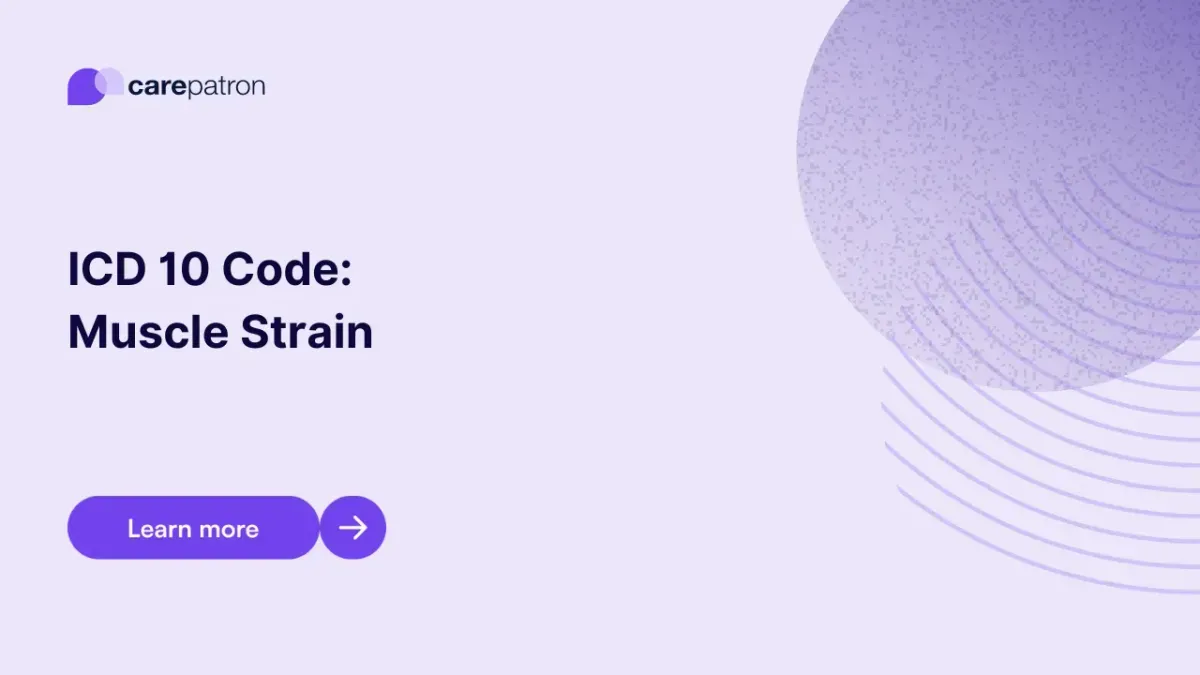
Muscle Strain ICD-10-CM Codes | 2025
Learn 2025 ICD-10 codes for muscle strain injuries to the hip, thigh, and pelvis. Includes billable codes, encounter types, symptoms, and treatments.
Use Code
Commonly asked questions
Use a muscle strain ICD-10-CM code when a patient presents with symptoms such as pain, tenderness, swelling, or limited motion due to overstretching or tearing of muscle, fascia, or tendon. These codes are appropriate during the initial evaluation, subsequent treatment, or sequela management of a documented strain injury.
Common treatments include rest, ice, compression, and elevation (RICE), nonsteroidal anti-inflammatory drugs (NSAIDs), and physical therapy to improve strength and flexibility. Severe strains may require temporary immobilization or referral to orthopedics or sports medicine specialists for advanced care.
A diagnosis code for muscle strain indicates the location, severity, and encounter type of the injury, such as initial or follow-up care for strained muscle, fascia, or tendon. It helps clinicians document the injury and guides billing, treatment planning, and insurance reimbursement.
EHR and practice management software
Get started for free
*No credit card required
Free
$0/usd
Unlimited clients
Telehealth
1GB of storage
Client portal text
Automated billing and online payments
